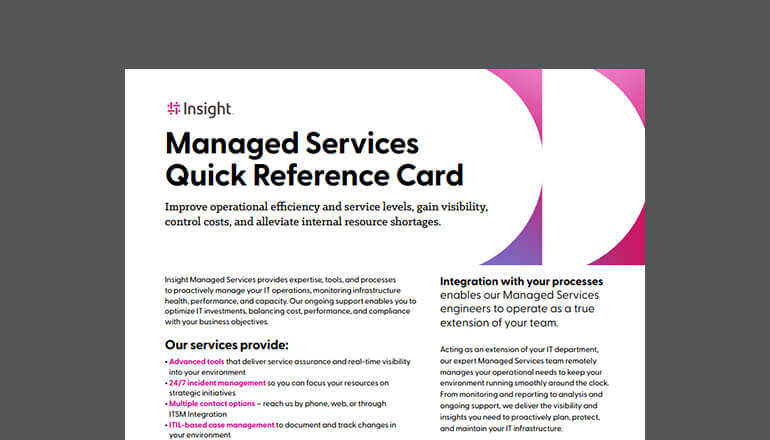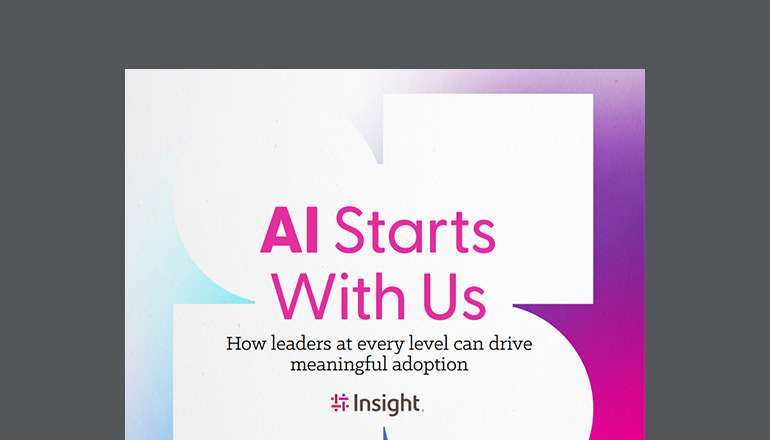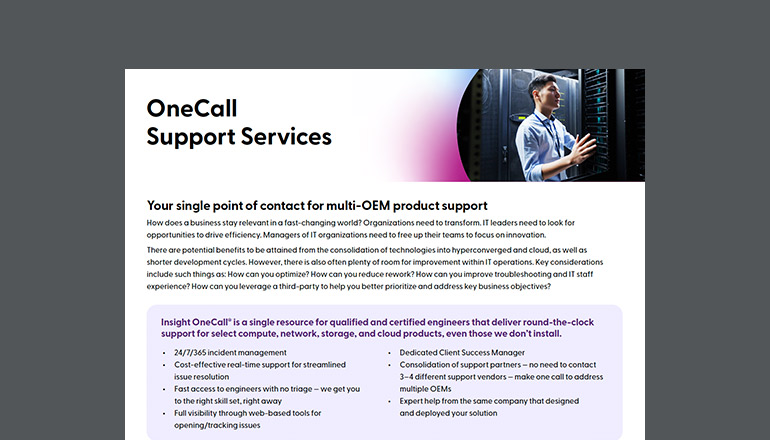Article The Future of Data Protection — And What It Means for Your Business
Powerful security doesn’t have to come at the expense of user experience. Protect your devices and sensitive company data with a platform that users love.
By Rachel Tucker / 6 Jan 2022 13 Jan 2023 / Topics: Artificial Intelligence (AI) , Cybersecurity

Data protection is a top concern for businesses, and demand for data privacy process improvement is high. The U.S. doesn’t have a singular, comprehensive law governing data privacy — though the federal American Data and Privacy Protection Act (ADPPA) is expected to be considered when Congress reconvenes in 2023. However, states have passed laws regarding how businesses gather, store and use data. In this article, we’ll look at the future of data privacy and regulation, as well as cybersecurity tools that are vital to your business operations.
First, what do we mean by data protection? Data protection is the process of securing essential data from corruption, compromise or loss. With proper protocols, only authorized people can access and alter the information — ensuring malicious actors don’t obtain the information and users don’t accidentally change it. Furthermore, the process can restore data to a functional state should it become out of reach or unusable.
Because a great degree of sensitive information is at stake, data protection is not only a legal necessity but imperative to protecting and maintaining your business’s reputation. Companies regularly store sensitive information about clients, staff, business partners and more. Data privacy is more than just compliance; it strengthens the relationships and trust that grow your business.
When the pandemic led millions of employees nationwide to work remotely, data privacy and protection took center stage. Unfortunately, remote devices are the most vulnerable to attacks from cybercriminals, making endpoint devices such as desktops, laptops, servers and more the most prominent targets. Cybercriminals often use these devices as an entry point to access business networks, steal company data, attack software vulnerabilities and hold pertinent information hostage. While pandemic restrictions have lifted, many organizations have permanently adopted a hybrid work model, and device and cloud security remain a vital component of your business. Endpoint security can help minimize risk and lower the threat of cyberattack against your remote workers.
User access control is another way to protect your organization's information. Data access controls allow you to authorize employees, users and any third parties to gain access to your data in a way that meets security, privacy and compliance requirements. These controls prevent unauthorized users from accessing sensitive information.
It’s clear that data protection and privacy are important for businesses — and that consumers are willing to sever ties with organizations they don't trust with their data. According to the Cisco 2022 Consumer Privacy Survey, 76% of respondents said they would not buy from a company they do not trust with their data, and 81% agreed that the way an organization treats personal data is indicative of how it views and respects its customers.
In addition to customer loyalty and the risk of data breach, it’s important for companies to understand and stay aware of regulation changes in their own country and around the world. Let's look at General Data Protection Regulation (GDPR) and how it impacts business compliance.
How does GDPR impact your business?
On May 25, 2018, the General Data Protection Regulation (GDPR), a privacy policy that sets guidelines for collecting and processing personal information in the European Union (EU), came into effect. The GDPR has affected businesses worldwide, and the regulation enlists severe fines against those who violate its standards. Through the ordinance, citizens have more control over their personal data and can trust that their information is adequately handled.
The passing of GDPR has directly impacted data privacy and security standards while also indirectly encouraging organizations to develop and improve their own cybersecurity measures to limit the risk of a data breach. According to Gartner’s predictions, by the end of 2023, 65% of the world’s population will have their personal data covered under a data privacy regulation. In comparison, this percentage was 10% in 2019. As more digital devices become available to the public — and hybrid work remains the norm — consumers increasingly trust cloud services with their data. More online activity creates a higher risk of data breach. A 2019 report from Cisco suggested that GDPR compliance reduces data breach impact. Incident response, legal and security experts agree but are cautioned not to rely on observation alone.
U.S. state privacy laws in 2023
Five states in the U.S. have enacted consumer data privacy laws: California, Colorado, Connecticut, Utah and Virginia. These laws include provisions such as the right to access and delete personal information, the requirement to post privacy policies on websites and online services, the right to opt out of the sale of personal information and more.
It’s important that businesses understand the specific data regulations for each state.
- California Consumer Privacy Act of 2018
- California Consumer Privacy Rights Act Proposition 24 (Effective January 1, 2023)
- Colorado Privacy Act (Effective July 1, 2023)
- Connecticut Personal Data Privacy and Online Monitoring (Effective July 1, 2023)
- Utah Consumer Privacy Act (Effective December 31, 2023)
- Virginia Consumer Data Protection Act: HB 2037, SB 1392 (Effective January 1, 2023)
All in all, GDPR favors consumers, and the regulations allow them to see which businesses have their data, why they have it, where it's stored and who is accessing it.
Data protection experts on your side
With a technology partner like Insight, you'll have a team of committed experts to walk you through every step of privacy changes, endpoint vulnerabilities, user access control and leading solutions for data protection. Our deep catalog of trusted security solutions will keep your most sensitive information secure.
Gain peace of mind for your data protection with Insight.







